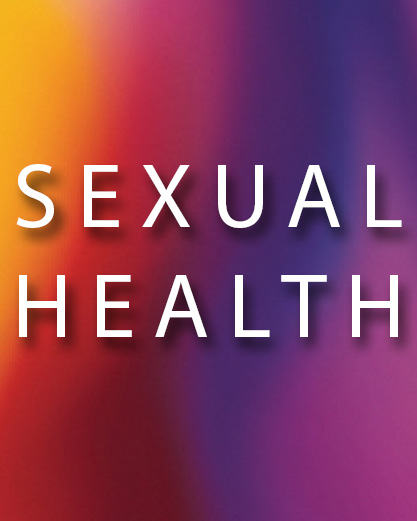
Sexual Health
Volume 22 Number 4 2025
This systematic review synthesized evidence from 50 studies, identifying five key barriers and facilitators to HIV pre-exposure prophylaxis (PrEP) engagement among Chinese sexual minority men: (1) sexual behaviors and perceived HIV risk; (2) PrEP-related stigma and homophobia; (3) history of HIV/STI care engagement; (4) perceptions of PrEP efficacy, side-effects and adherence; and (5) structural barriers, such as cost, insurance and residency status. Cross-agency collaboration is crucial to develop and implement effective strategies to improve PrEP uptake in this population.
Extreme weather events (e.g. drought, flooding) are linked with HIV acquisition risks, yet limited studies have assessed these associations with refugee adolescents and youth in humanitarian contexts. Among refugee youth in a Ugandan refugee settlement, we found extreme weather event exposure was associated with multiple HIV vulnerabilities, including reduced sexual relationship power, reproductive autonomy and condom use self-efficacy, and increased transactional sex and intimate partner violence. Current findings support the need for climate-informed, youth-tailored HIV prevention strategies with refugee youth.
As more transgender women pursue hormonal therapy to align their bodies with their gender identity, questions remain about the potential long-term health impact of this treatment. This study monitored changes in body weight and key metabolic markers over the first 18 months of therapy and found it to be generally safe, with only mild shifts and no serious adverse outcomes. These findings help strengthen confidence in hormonal treatment and support more informed, inclusive health care for transgender females.
This methodology piece used co-creation methods to engage middle-aged and older adults, including disabled individuals, in shaping inclusive sexual health services in England. Working alongside community leaders, the team co-designed workshops and interviews. Reflections highlighted key strengths – shared decision-making, co-leadership and co-facilitation – as well as challenges, such as accessibility, recruitment and time constraints. The findings demonstrate the value of co-creation in sexual health research, and call for further work across diverse populations to support inclusive service development.
This article belongs to the collection: Sexual health among older adults: A multi-disciplinary collection.
SH25022 Abstract | SH25022 Full Text | SH25022PDF (227 KB) | SH25022Supplementary Material (790 KB) Open Access Article
Stigma and discrimination in health care can hinder people living with HIV from getting medical care. Our study in a Taiwanese medical center found that most healthcare workers took unnecessary precautions and held negative attitudes toward PLHIV, and over one-third were unwilling to care for groups at high risk of HIV infection. These findings highlight the urgent need for education and surveillance programs to reduce HIV-related stigma and discrimination in healthcare facilities.
With HIV cases rapidly increasing in the Philippines, particularly among MSM, understanding how to improve access to prevention is more urgent than ever. This study reveals which features of HIV prevention services (such as cost, convenience, type of medication and delivery location) matter most to Filipino MSM. The findings highlight diverse preferences across different subgroups, offering critical insights to guide person-centered, community-based programs that make HIV prevention more accessible, acceptable and effective across the country.
This article belongs to the collection: Awareness, Preferenes, and the Use of PrEP in Asia Among Men Who Have Sex With Men Findings from the PrEP APPEAL Study.
Information about contraceptive options is important for informed decision making. We conducted an online survey with 1745 Australian women aged 18–45 years to understand their information needs about contraceptive implants and intrauterine devices. We found women considering using these contraceptive methods have clear information needs, that may not be met by traditional information sources.
SH25056 Abstract | SH25056 Full Text | SH25056PDF (464 KB) | SH25056Supplementary Material (236 KB) Open Access Article
To date, there has not been a study that statistically summarised the prevalence rates of problematic pornography use (PPU) across different studies. This meta-analysis found an overall PPU prevalence rate of 13.00% across 22 studies. This prevalence rate was higher than other forms of behavioural additions (e.g. gambling disorder), suggesting that PPU is an important public health issue that warrants greater clinical and research attention.
SH25054 Abstract | SH25054 Full Text | SH25054PDF (426 KB) Open Access Article
The present study examined perceived and enacted stigma among 842 gay, bisexual and other men who have sex with men (GBMSM) in Nepal through an online survey. Nearly half experienced enacted stigma and over half reported perceived stigma. Older age, HIV testing, anal sex engagement, and depressive symptoms were linked to higher perceived stigma. Enacted stigma was associated with depressive symptoms, chemsex or transactional sex and concealing one’s sexual orientation while sufficient sleep reduced it. The results highlight the necessity of stigma-reduction initiatives and supportive treatments, especially for GBMSM populations.
Infertility is a major reproductive health concern affecting millions of women worldwide. Our study reveals a significant association between uric acid to high-density lipoprotein cholesterol ratio (UHR) and female infertility risk, based on data from a large cross-sectional study. These findings suggest that UHR could serve as a potential biomarker for infertility risk assessment, providing new insights for early detection and intervention strategies.
The use of saliva as a lubricant during sexual activities among men who have sex with men (MSM) is understudied. We found that MSM who use saliva are more likely to engage in solo masturbation and kissing, and when using saliva as a lubricant, they first apply their saliva via their hands. This study adds to the growing body of knowledge on saliva use during sexual episodes, aiding the development and promotion of safe sexual practices among MSM.
SH24213 Abstract | SH24213 Full Text | SH24213PDF (1.1 MB) | SH24213Supplementary Material (833 KB) Open Access Article
Using antibiotics preventatively could significantly reduce STIs in gay and bisexual men, but it may also contribute to the development of antimicrobial resistance. This presents a public health ethics dilemma: how should we weigh the benefits of STI control against risks to health both in the immediate future and to future generations? Two authors tackle this issue, presenting arguments for and against doxycycline post-exposure prophylaxis, using an influential public health ethics framework.
SH24013 Abstract | SH24013 Full Text | SH24013PDF (166 KB) Open Access Article
Using antibiotics preventatively could significantly reduce sexually transmissible infections in gay and bisexual men, but it may also contribute to the development of antimicrobial resistance. This presents a public health ethics dilemma: how should we weigh the benefits of STI control against risks to the health of future generations? Two authors tackle this issue, presenting arguments for and against doxycycline post-exposure prophylaxis, using an influential public health ethics framework.
SH24008 Abstract | SH24008 Full Text | SH24008PDF (154 KB) Open Access Article
Alongside partnership, adaptation is one of the enduring themes of the Australian response to HIV. This article presents a case study to examine the factors that influence the effectiveness of peer navigation programs for people living with HIV run by community organisations in partnership with providers of clinical care. Its findings guide the improvement of service and policy systems and similar programs aimed at empowering better treatment outcomes and quality of life for people living with HIV.
SH24126 Abstract | SH24126 Full Text | SH24126PDF (244 KB) Open Access Article
Adolescent psychosexual health is a critical, yet often overlooked, aspect of youth development, shaping lifelong well-being and behavior. This study explores the key factors influencing psychosexual health among Chinese vocational students, revealing that peer relationships and parent–adolescent communication play the most significant roles. These findings highlight the need for targeted interventions that strengthen peer and family dynamics, offering a roadmap for educators and policymakers to support healthy sexual development in vocational education settings.
As the COVID-19 pandemic placed pressure on health services and limited accessibility, ‘off-label’ recommendations suggesting extended use periods for long-acting reversible contraceptive (LARC) devices emerged internationally. Despite these recommendations, typical usage patterns were maintained in Australia, with extended use periods observed in less than 10% of LARC users. As these extended use periods have since been made permanent in regulatory documents and clinical guidelines, targeted education for providers and consumers will be required to support uptake and consistent implementation.
SH25004 Abstract | SH25004 Full Text | SH25004PDF (379 KB) Open Access Article
Latent syphilis, a hidden infection with no symptoms, has surged globally, yet current treatments often rely on uncertain disease staging. This study reveals that a simple antibody test (nontreponemal immunoglobulin M) can identify active infections, showing patients with positive immunoglobulin M take longer to recover and need tailored therapies. By personalizing treatment based on antibody levels, doctors can reduce unnecessary antibiotic use, especially in vulnerable groups, such as older adults, improving care and easing healthcare burdens.
SH25047 Abstract | SH25047 Full Text | SH25047PDF (639 KB) | SH25047Supplementary Material (187 KB) Open Access Article
When diagnosed with an STI, people are advised on partner notification (PN); however, little is known about those who receive this important information. Our study found that people who received spoken PN had slower presentation times for STI testing compared with those who received electronic PN. Electronic PN was the most popular method in the study. Wider use of electronic PN could improve STI management, and further research into its effectiveness is required.
Social media is increasingly being used to recruit participants to social research. Here, we provide a practical guide to using social media to recruit for sexual and reproductive health research, and include examples throughout from our own studies. We outline our triumphs and pitfalls in using this recruitment strategy, the challenges we have faced and the lessons we have learnt.
SH24123 Abstract | SH24123 Full Text | SH24123PDF (1.3 MB) Open Access Article




